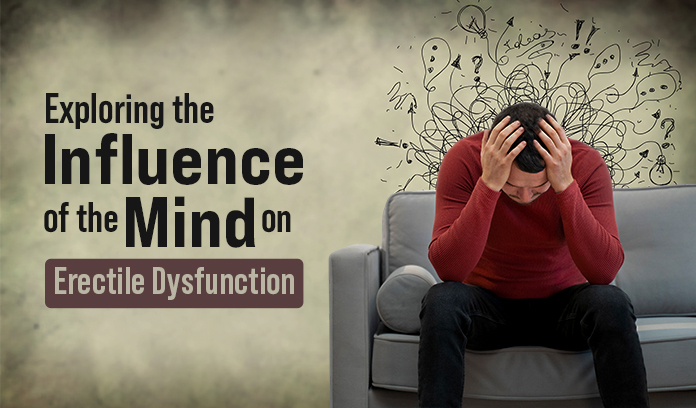Erectile dysfunction is a complex medical dysfunction which includes both physical and psychological components. While some erections appear to “just happen,” many requires mental stimulation or sexual interest. Some men continue to participate in this process subconsciously, while some do not need to actively think about sex but rather have an open mind that is receptive to subconscious thoughts or stimuli. Many men often ignore the role of mind in the erection process for this reason until ED occurs.
Understanding the Mind-Body Connection
When analysing the impact of the mind on erectile dysfunction, the mind-body connection is a fundamental concept. Stress, anxiety, depression, and relationship issues are all psychological factors that can cause ED to develop or worsen. Stress triggers the release of hormones like cortisol which can interfere with normal sexual function. Anxiety and depression can affect libido and sexual desire negatively, leading to difficulty in getting or maintaining an erection.
Performance Anxiety and Erectile Dysfunction
Men with performance anxiety may feel pressured to perform sexually, which can cause self-doubt and failure of fear. This anxiety may create a vicious cycle of worry, further impacting erectile dysfunction. To break this cycle and reduce the ED symptoms that are related to performance anxiety, it is important to address it through open communication, relaxation techniques, and if necessary, professional counseling.
Emotional Factors and Erectile Dysfunction
Certain emotional statre can contribute to erectile dysfunction as emotions play a crucial role in sexual experiences. Issues such as past traumatic experience, unresolved conflicts, and low self-esteem can all cause erectile dysfuction. Guilt and shame surrounding sexuality can also hinder sexual function.
Conclusionerectile dysfunction
Exploring the influence of the mind on erectile dysfunction can highlight the nature of this condition. By addressing the mind-body connection, overcoming sexual performance, identifying and understanding emotional barriers, emerging into open communication, and seeking professional help when required can navigate the challenges of erectile dysfunction and improve overall well-being.

